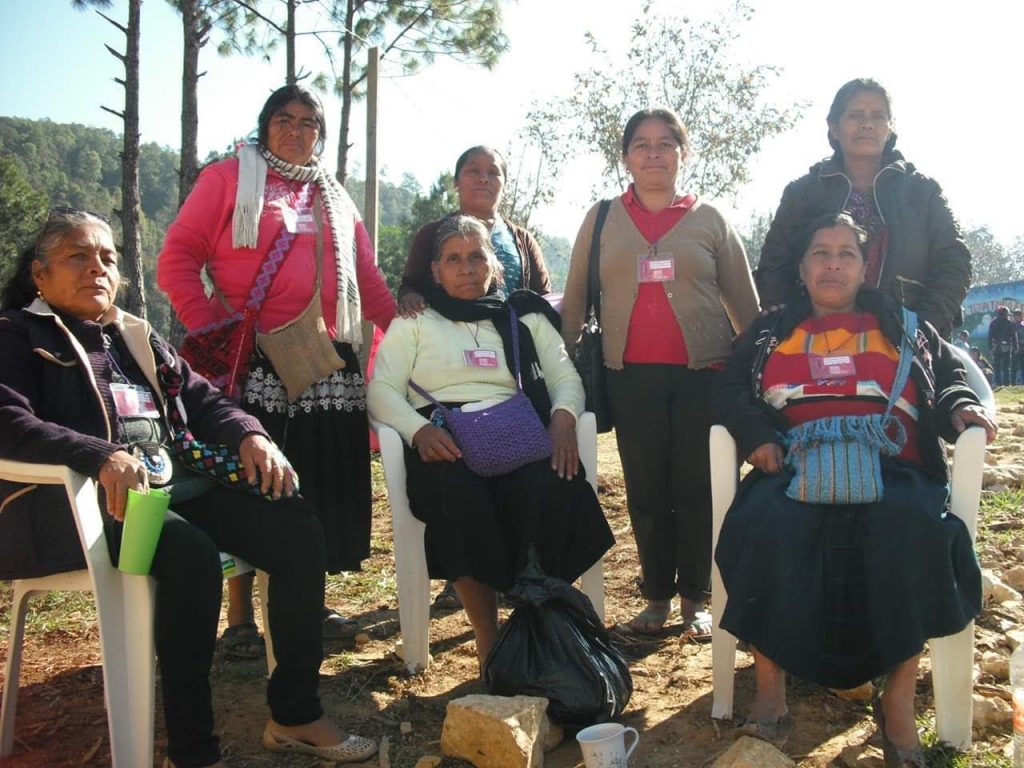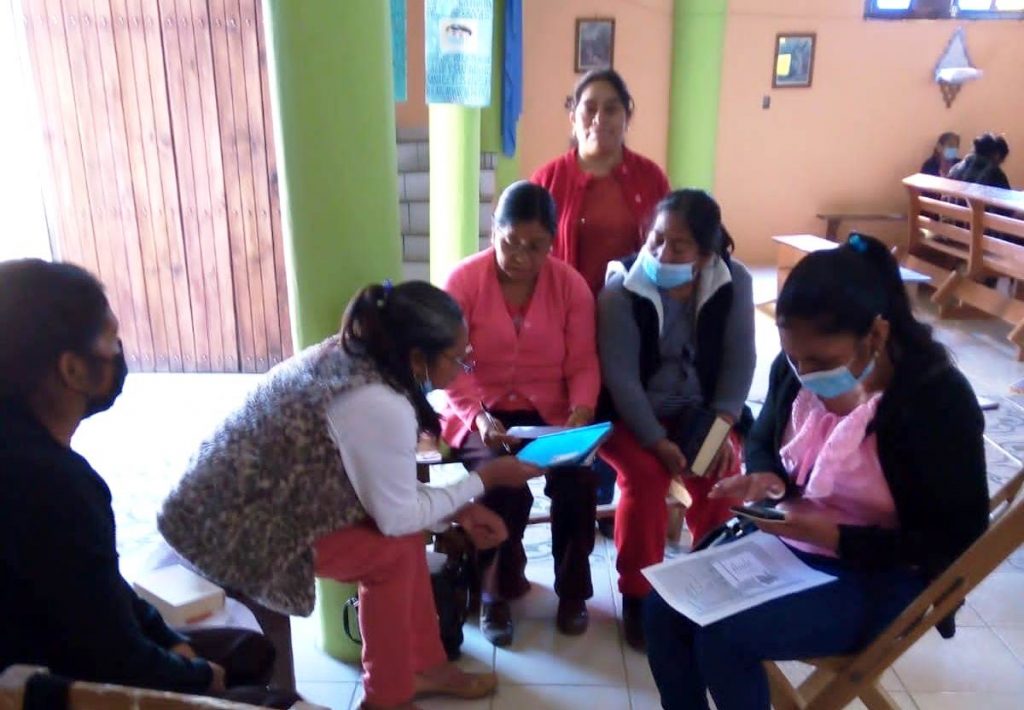A WOMAN WHO LIBERATES HERSELF
- Hnasmdro
- abril 4, 2023
- MDR Experiences
- 0
- 228
This afternoon Faustina arrives at our house with great enthusiasm because she is starting an online course on Feminist Theology. In spite of her interest in the subject, she comes with many doubts and above all a concern: How will a course of this type be? Today, seeing her with this interest, self-confidence and openness, my thoughts take me back to years ago: Faustina, a widowed woman with a son, was a very shy woman who spoke in a stammer, silent, looked down when asked a question and earned her living as a dressmaker because she was poor and did not receive support from any family member. I always saw her sitting quietly, but with a smile on her face.
Today, Faustina is an active servant within the parish, she “Celebrates/preaches the Word”, does represent the Women’s Area at the Diocesan level, and for several years, she was the Principal Authority in her town. What made Faustina change in this way?
Belonging to the Diocesan Coordination of Women (CODIMUJ), one of the pastoral structures of the Diocese of San Cristobal de las Casas, Chiapas. It gives her the opportunity to recognize her value and dignity as a daughter of God, to empower herself as a woman with rights and duties. CODIMUJ’s objective is to accompany women on the road to integral liberation in a world of equals.

At the beginning, this area was not so easily accepted in the Diocese because it started from “seeing” the situation of clamor, oppression and submission of women. Sister Maria del Carmen Martinez (MDR) along with other pastoral agents wanted to respond to the situation of exclusion of women, with the conviction that women “can”, not that we are “more” or better than men, but equal in walking together, “with both feet”, as preached among the Tzeltales (original group of the Diocese). In that we have the right and dignity as the Word of God says, freedom to “go out” and we do it with responsibility. Maria del Carmen comments: “I felt called and impelled to call and accompany us as women who seek liberation, to live in dignity and equality and to participate in building a new humanity”.
There is no fixed date for the beginning of this accompaniment among women, but it was recognized as an Area by the diocesan structure in 1992. The cohesion of the women in the Area is the Word of God read from “us”, with a woman’s flavor – as the tortilla tastes like a woman’s hand when it is made by her with the corn brought and carried by the man, the Tzeltal approach. Even the area’s motto is “Reading the word of God with the eyes, mind and heart of a woman”. From the beginning, a clear criterion was “we are women believers in the God of Life and in Jesus of Nazareth and our contribution was from the Word with critical and integral formation”.
The women were discovering God’s great love for his creatures, the freedom to which the Gospel invites. Going “out of the house” opened their eyes and allowed them to see themselves, their past and present in order to overcome the great historical sin of excluding women. Coming together and becoming many gives them courage and audacity. They feel they are heirs, memory, multipliers and with a creative resistance.

At present, there are countless women’s groups that have been growing and spreading throughout the communities, parishes, zones and Dioceses, although in some areas, there are priests who do not support this area. These women were communicating, articulating, identifying ourselves as believing women, committed to participate in everything, creating changes in the family, in the Church and in society, participating in demonstration groups, organizations and in civil society. And so it is that women like Faustina, today can speak out in different spaces – social, religious, cultural and political – and is a testimony that when we walk in synodality and especially among women, there is an integral change.
Eneida Chavarría,
Community of San Cristóbal de Las Casas,
Mexico.
